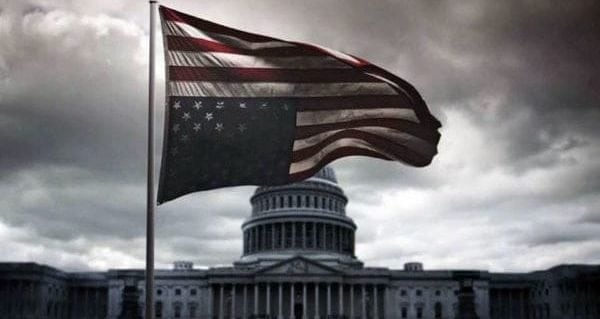 Now that I’ve read A Higher Loyalty (James Comey, 2018), War on Peace (Ronan Farrow, 2018), Fire and Fury (Michael Wolff, 2018) and Fear (Bob Woodward, 2018), I feel like I really know the ultimate protagonist.
Now that I’ve read A Higher Loyalty (James Comey, 2018), War on Peace (Ronan Farrow, 2018), Fire and Fury (Michael Wolff, 2018) and Fear (Bob Woodward, 2018), I feel like I really know the ultimate protagonist.
The portrayals of U.S. President Donald Trump are remarkably consistent. He is: vain, compulsively in-the-moment, intellectually lazy, a misogynist (and especially so when it comes to intellectually challenging women), a bully, an instinctive instiller of fear (or so he hopes), invariably negative in negotiation (before inevitably dangling a false positive), consumed by his unrelenting demands for personal loyalty, friendless (in the sense of lifelong buddies you joke around with), oddly enamoured of generals and admirals (given his conscious personal lack of military service), first and foremost “a businessman” (an oft-used but never rigorously defined phrase), and a measurer of all human value by one standard – money.
The money standard is pervasive in this Trump literature. It’s his ultimate metric. You rise and fall in his estimation solely on money.
Generals, for example, are worthy of some form of respect, but ultimately they “are not businessmen” and are not motivated by the Trump metric. As a result, they never attain the top rank.
Russian leader Vladimir Putin, noted by financier/author Bill Browder (Red Notice, 2015) as possibly the world’s wealthiest individual (with a rumoured net worth approaching $200 billion), gets high rank in the Trump pantheon for that reason alone.
And it would appear that the laurels that come with the rank are completely unblemished by thuggery, murder or skullduggery of any kind. The metric is the metric – it’s the standard. Period.
Beyond the money metric, however, is the one predominant Trump characteristic in interpersonal affairs. Woodward ends Fear with four words, his ultimate assessment: “You’re a f–king liar.”
Time and time again, in the books by Comey, Farrow, Wolff and Woodward, Trump comes across as fast and loose with the truth. His closest advisers, like Rudy Giuliani and Kellyanne Conway, defend this propensity by talking of “alternate facts” and saying things like, “The truth is not the truth.”
It’s as if prolonged exposure to the man erodes all social and political norms that, well, used to be normal. Didn’t most of us grow up with the basic understanding that some things were invariably true? Demonstrably so? Always?
Well, in the Trump universe, truth is always relative.
Beyond being rich and considering that all absolutes are really relative, what else counts in terms of human worth?
Here it’s oddly worth noting the emphasis that Trump puts on looking the part. Interestingly, the emphasis has nothing to do with fitness. It has everything to do with wearing a perfectly-groomed blue business suit every day. With a crisp monogrammed white shirt and a red or blue tie. Shoes are always perfectly shined. Facial skin is always ‘just tanned.’ And his hair is groomed to the point of absurdity.
The two observed variances to this presidential uniform are the the golf outfit and what I think of as his ‘disaster garb’ – khaki pants and vaguely military-style jacket worn when viewing hurricane damage.
I think Trump views his image as businessman at the office, on the golf course and in the field. These are his three unvarying persona. They all centre on being a businessman, being wealthy and controlling the narrative (including lying whenever necessary).
You get a sense of their absolute utility when you think of the people he considers important to his success, with whom he has “great chemistry.” They share the same characteristics. Think of his father, Putin, Chinese leader Xi Jinping, North Korean leader Kim Jong Un, maybe even (at least at the moment) Supreme Court nominee Brett Kavanaugh. All men. All wealthy. All tailored. All adept controllers of narratives.
Ruminating over the lessons of the contemporary Trump literature, I invariably come back to the realization that we grew up in the same post-Second World War era and must share many of the same cultural influences. But somehow such mainstream values as a modicum of empathy, truth and compassion passed him by.
It’s now the duty of American voters to instruct him in those values in the Nov. 6 midterm elections. The operative word is vote, not fear.
Troy Media columnist Mike Robinson has been CEO of three Canadian NGOs: the Arctic Institute of North America, the Glenbow Museum and the Bill Reid Gallery.
The views, opinions and positions expressed by columnists and contributors are the author’s alone. They do not inherently or expressly reflect the views, opinions and/or positions of our publication.

